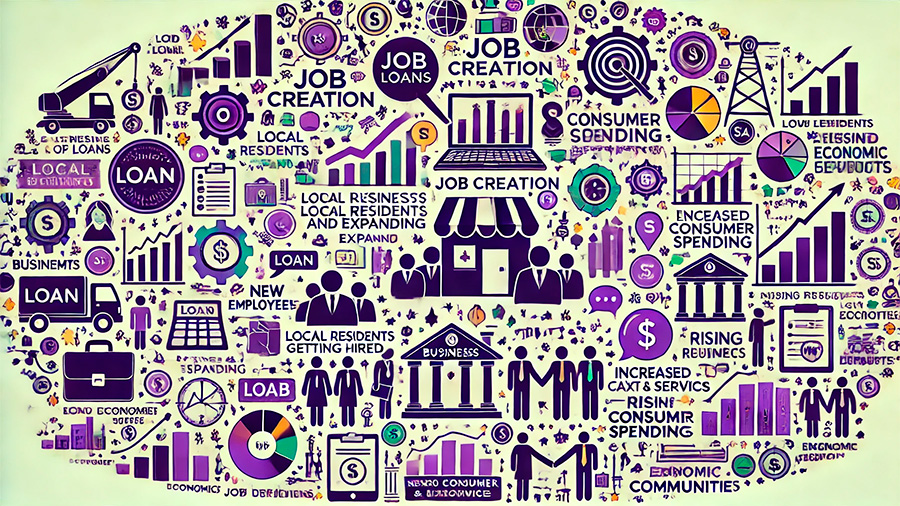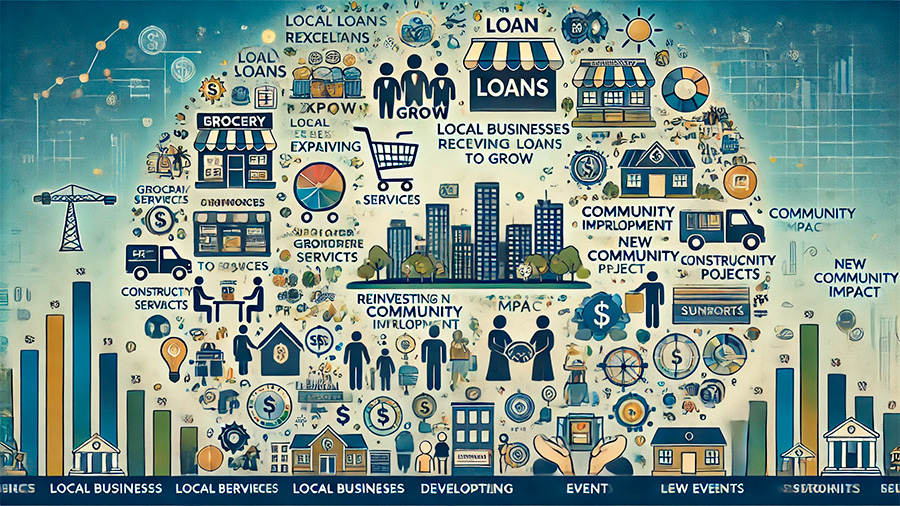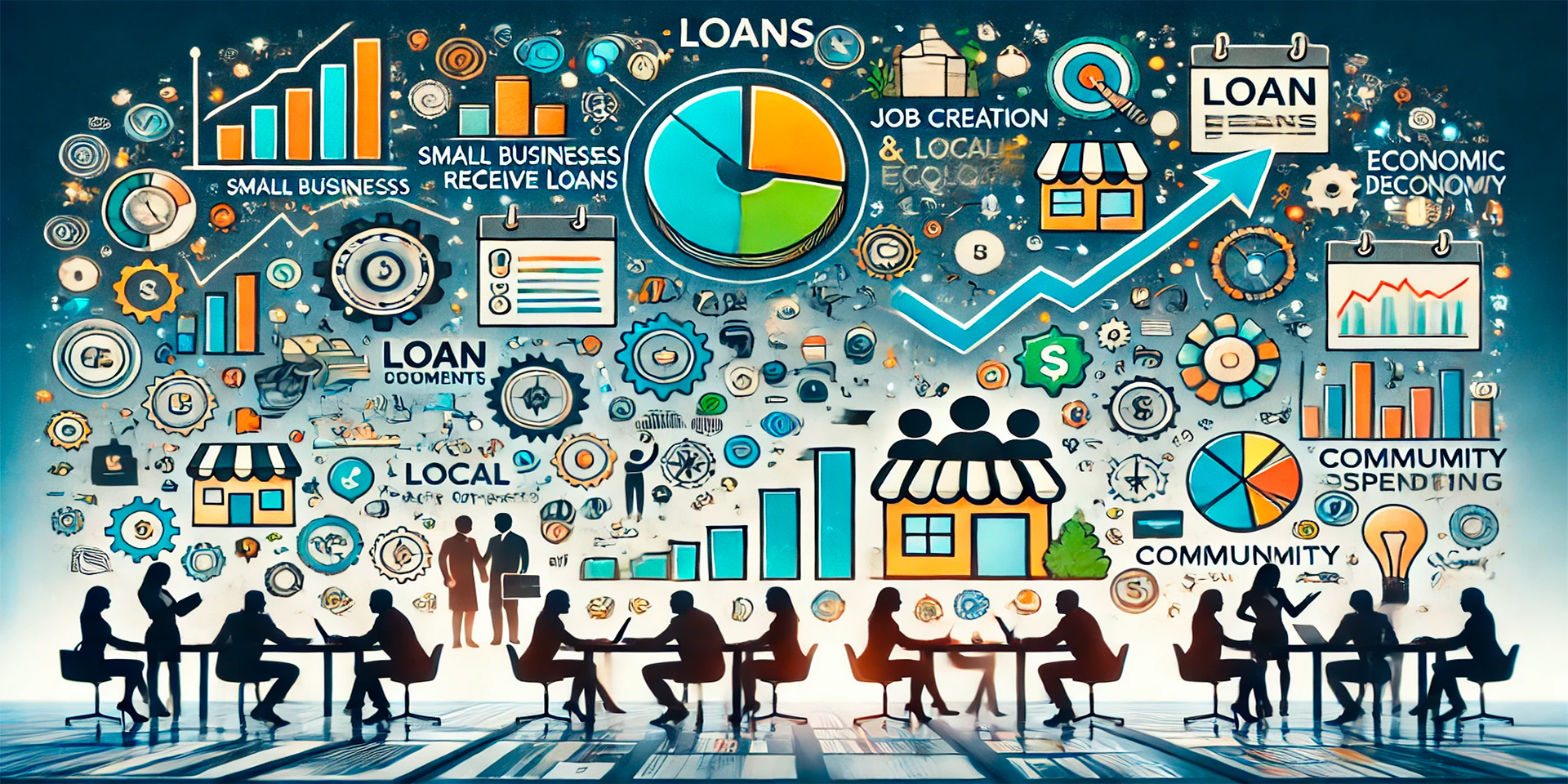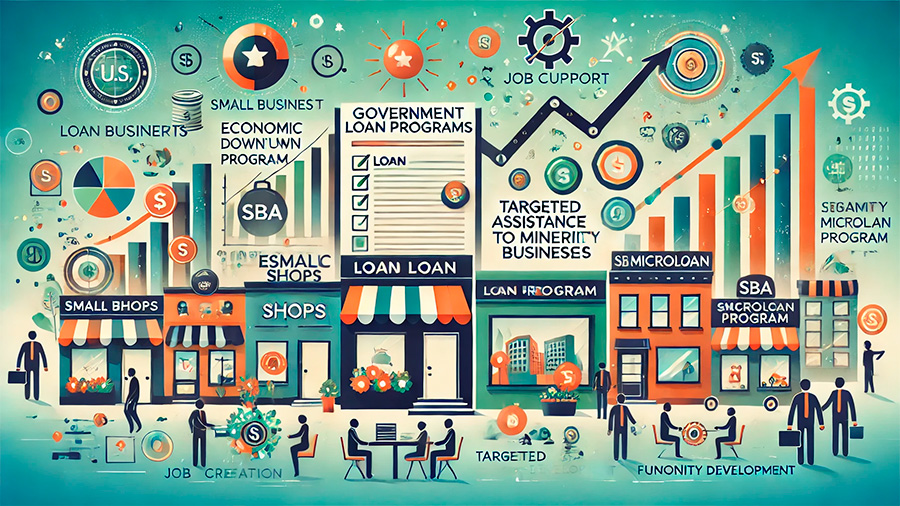Loans play a critical role in fostering the growth of local economies by providing essential financial support to small businesses, creating jobs, and encouraging community development. Whether through traditional bank loans or government-backed programs, access to capital allows local businesses to invest in expansion, improve their services, and hire more workers. These businesses, in turn, contribute to a vibrant local economy by generating income, increasing consumer spending, and creating a cycle of growth that benefits the broader community.
When local businesses succeed, they reinvest in the community, creating a multiplier effect that stimulates economic activity. Loans are the financial lifeblood that enables these businesses to thrive, expand, and innovate, driving the prosperity of local economies.
Financing Growth for Local Businesses
One of the primary ways loans help local economies thrive is by financing the growth of small and medium-sized businesses. For many local entrepreneurs, access to credit is the key to turning a business idea into a reality. Loans provide the capital needed for startups to get off the ground, whether it’s covering the costs of equipment, inventory, or marketing.
As businesses grow, loans continue to play a pivotal role in helping them scale. Whether it’s opening a new location, hiring additional staff, or upgrading equipment, loans allow local businesses to expand their operations and increase their capacity. This growth translates into more goods and services for the local community, which in turn drives higher consumer spending and keeps the local economy vibrant.
Without access to financing, many small businesses would struggle to grow or sustain themselves, especially during challenging economic times. Loans provide the financial stability and flexibility that businesses need to invest in long-term growth, ensuring they can meet the evolving demands of their customers and stay competitive in the marketplace.

Creating Jobs and Reducing Unemployment
Loans directly contribute to job creation by providing businesses with the capital necessary to hire new employees. When a local business takes out a loan to expand, they often need to hire additional staff to manage increased production, provide better customer service, or handle expanded operations. This leads to new employment opportunities for residents in the community.
Job creation has a ripple effect on the local economy. When more people are employed, they have disposable income to spend at other local businesses, creating a cycle of economic activity. As demand for goods and services rises, businesses experience growth, which can lead to further hiring and expansion. This virtuous cycle helps reduce unemployment and fosters a sense of economic stability within the community.
Moreover, as businesses expand and hire more workers, they contribute to the overall economic well-being of the region by increasing tax revenues. These additional funds can be used by local governments to improve infrastructure, education, and public services, further enhancing the quality of life for residents.
Supporting Innovation and Competitiveness
Loans not only help businesses grow but also encourage innovation. For local businesses to remain competitive, especially in an increasingly digital economy, they need to invest in new technologies, modernize their operations, and improve their products or services. Loans provide the financial resources necessary to make these investments, allowing businesses to stay ahead of the competition.
For example, a small manufacturing company may take out a loan to invest in new machinery that improves production efficiency, reducing costs and enabling them to offer more competitive pricing. A local retail business might secure financing to develop an e-commerce platform, allowing them to reach a wider audience beyond their immediate geographical area.
By supporting innovation, loans help local businesses enhance their competitiveness, ensuring that they can meet the changing demands of consumers and stay relevant in their industries. This, in turn, benefits the local economy by keeping businesses sustainable and attracting new customers, both locally and from outside the community.

Encouraging Community Development
Loans also play an essential role in community development, as they enable the growth of local businesses that serve the needs of the population. For example, a loan to a local grocery store might allow it to expand its offerings, providing fresh, healthy food options to residents. A loan to a construction company might result in the development of affordable housing or commercial spaces that attract new businesses to the area.
By funding projects that benefit the community, loans contribute to improving the quality of life for local residents. Whether it’s through creating essential services, developing infrastructure, or supporting cultural and recreational initiatives, loans help communities grow and flourish.
Additionally, when local businesses are successful, they often reinvest in their communities. Many small business owners are deeply connected to the areas they serve, and they frequently give back by supporting local charities, sponsoring community events, or participating in civic initiatives. The success of these businesses, supported by loans, thus has a broader social impact, fostering a sense of community cohesion and civic pride.
The Role of Government-Backed Loans in Local Economies
Government-backed loan programs, such as those offered by the U.S. Small Business Administration (SBA), play a significant role in supporting local businesses and driving economic growth. These programs often offer more favorable terms than traditional bank loans, including lower interest rates, longer repayment periods, and reduced collateral requirements.
For many small businesses, especially those in underserved communities, government-backed loans are the key to accessing the capital they need to grow. These programs are designed to target businesses that may not qualify for conventional loans, helping to level the playing field and promote inclusive economic development.
In addition to helping individual businesses, government-backed loans also contribute to the broader economic recovery of regions affected by economic downturns or natural disasters. By providing financial support to businesses in these areas, government loans help stimulate local economies, create jobs, and foster long-term stability.
How Borrowing Strengthens the Local Economy
When local businesses have access to loans, they contribute to the overall strength and resilience of the local economy. Borrowing enables businesses to invest in new opportunities, adapt to changing market conditions, and weather periods of economic uncertainty. In turn, this financial stability allows businesses to continue serving their communities, providing jobs, and driving economic activity.
By maintaining healthy cash flow through loans, businesses can better manage unexpected expenses, avoid layoffs, and remain competitive in their industries. This financial security benefits not only the individual business but also the wider community by preserving jobs and keeping money circulating within the local economy.
Additionally, borrowing helps attract new businesses to the area, as entrepreneurs see the potential for growth and investment. A thriving local economy, supported by loans, becomes a magnet for new business ventures, which further contributes to economic development and job creation.
Conclusion
Loans are essential for helping local economies thrive by supporting business growth, creating jobs, fostering innovation, and encouraging community development. By providing businesses with the capital they need to invest in their future, loans drive economic activity and ensure long-term prosperity for communities. Whether through traditional bank loans or government-backed financing programs, borrowing plays a crucial role in building stronger, more resilient local economies.


